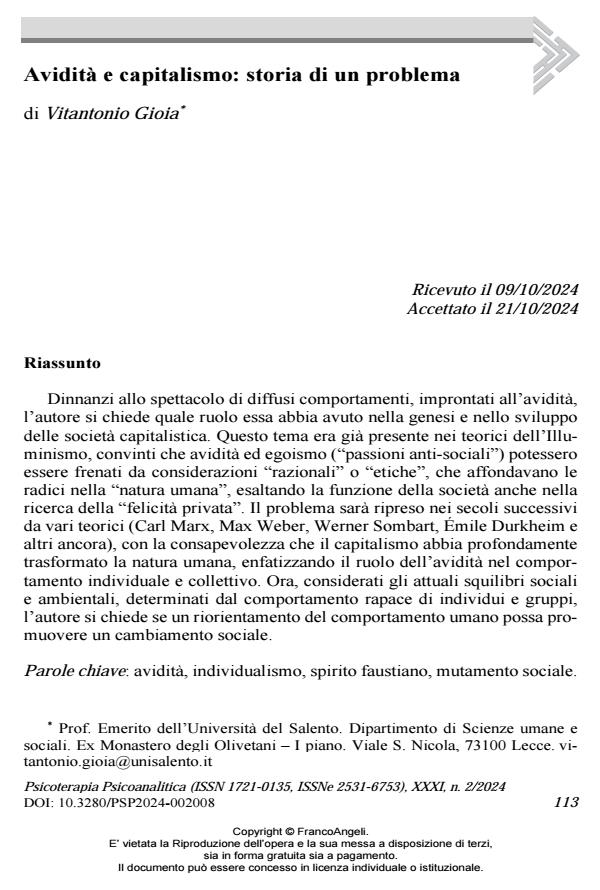Greed and capitalism, the story of a problem
Journal title PSICOTERAPIA PSICOANALITICA
Author/s Vitantonio Gioia
Publishing Year 2024 Issue 2024/2
Language Italian Pages 18 P. 113-130 File size 237 KB
DOI 10.3280/PSP2024-002008
DOI is like a bar code for intellectual property: to have more infomation
click here
Below, you can see the article first page
If you want to buy this article in PDF format, you can do it, following the instructions to buy download credits

FrancoAngeli is member of Publishers International Linking Association, Inc (PILA), a not-for-profit association which run the CrossRef service enabling links to and from online scholarly content.
Faced with the spectacle of widespread behavior, marked by greed, the author wonders what role it has played in the genesis and develop-ment of capitalist societies. This theme was already present in the theo-rists of the Enlightenment, who were convinced that greed and selfish-ness (“anti-social passions”) could be curbed by “rational” or “ethical” considerations, which had their roots in “human nature”, exalting the function of society also in the pursuit of “private happiness”. The problem would later be taken up by various theorists, in the following centuries (Carl Marx, Max Weber, Werner Sombart, Émile Durkheim and many others), with the awareness that capitalism had profoundly transformed human nature, emphasizing the role of greed in individual and collective behavior. Now, given the current social and environ-mental imbalances, brought about by the rapacious behavior of indi-viduals and groups, the author wonders whether a reorientation of hu-man behavior can promote social changes.
Keywords: greed, individualism, faustian spirit, social change.
Vitantonio Gioia, Avidità e capitalismo: storia di un problema in "PSICOTERAPIA PSICOANALITICA" 2/2024, pp 113-130, DOI: 10.3280/PSP2024-002008